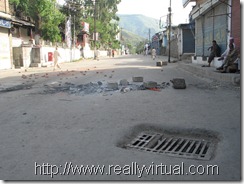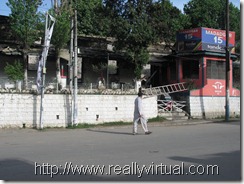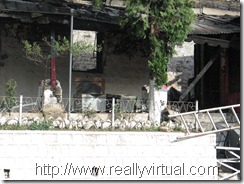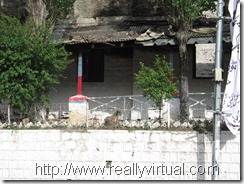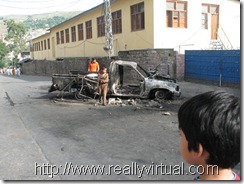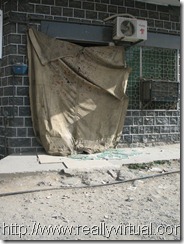Of the dozens of stories that I have heard from the neighbors of the compound that was attacked in Abbottabad, this is the one that keeps resurfacing in my mind.
The old lady’s family moved to Bilal Town five or six years ago. She told me that in all those years, she never encountered any woman or child from the group living in the compound – until the day she met the small boy in 2011.
The people (or families) living in the compound did not buy fresh milk themselves, but asked the milkman to leave it in a neighboring house. From the neighboring house, one of the two men that did all the shopping would pick up the milk bucket and take it inside the compound. One day, the lady was visiting the house where the milk was delivered, where she saw a seven or eight year old boy trying to pick up the milk bucket. She recalled that the boy was ‘tiny and beautiful’. She asked him (in Pashto) what he was trying to do, he told her that he was there to fetch the milk. She asked him if he could lift the bucket. The boy told her that it was too heavy. The seventy or so year old lady picked the bucket of milk and helped the child carry it to the gate of the compound. After telling me this story, she started a monologue, wondering what might have happened to the boy who no different than her own grandchildren, and hoping that he was alright.
I don’t know if the child was Osama’s son or even related to him, but for her sake, I too hope that the boy was amongst the children that were found outside the compound, hands bound, after the raid. I hope that the stateless boy is not exploited by the governments, madrasas, social workers or other types of vultures that are trying to benefit from his misfortune. I hope that in the years to come, the child is not punished just because of his association with Osama Bin Laden – and I hope that he grows up to be a normal human being – as normal as possible given the unusual circumstances that he had to live through during the first seven years of his existence.





